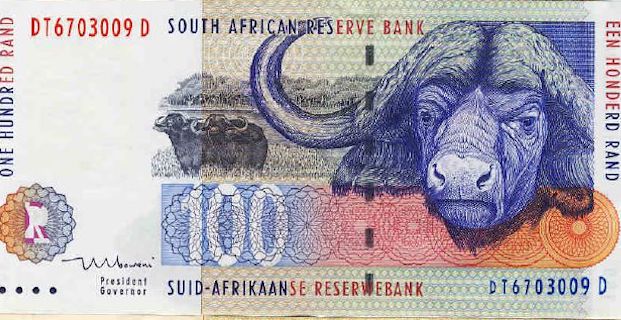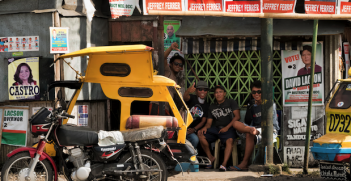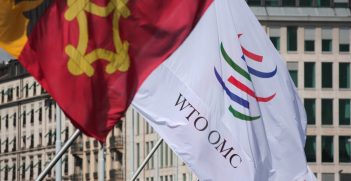South Africa: Of Downgrades, Hubris and Redemption

Following South African President Jacob Zuma’s recent cabinet reshuffle, South Africa’s credit rating has been downgraded to “junk” status. The damage will be felt most by the poor, and without domestic political reform, South Africa will struggle to recover its international reputation.
On 3 April the sword that had been dangling over the heads of South African citizens for the last two years finally came down—South Africa was downgraded by S&P Global to sub-investment grade with a negative outlook. But the country may be in ‘good’ company. South Africa has joined both Brazil and Russia in the junk status club. However, its rand-denominated debt is still two notches above sub-investment level, albeit with a negative outlook. As most of the debt is rand-, rather than dollar-, denominated, this is a silver lining.
Watching the Twitter-sphere one might be excused for believing that this was a conspiracy against the president, that SA doesn’t need the ratings agency, the BRICS rating agency will make all of these moves unnecessary and what does it matter to those who have no work anyway?
Of course it matters, because South Africa is integrated into the international markets from which it raises capital regularly. And it matters to the poor the most. From the increased costs of financing the sovereign debt to higher interests rates, rising food and petrol prices, reduced confidence in the economy and the attendant impact on the fiscus, the newfound #junkstatus will leave South Africans poorer and less able to tackle underlying developmental problems. The country will not necessarily feel it immediately, but feel it South Africa will: those South Africans in the middle class less, but those who also had to go through the harrowing experience of uncertainty about their social welfare grants barely a week ago will feel it much more.
Is this South Africa’s ‘new normal’? If so, the new normal bodes poorly for the president’s “radical economic transformation” agenda, vague as its contents may be at this stage.
Seven-and-a-half years is the average time it takes for a country to regain investment grading, provided it adopts appropriate policies and its leadership rebuilds its lost credibility. Research by RMB undertaken some years ago showed that only 30 per cent of those relegated to junk status were able to get out of it.
So while junk status may not be permanent, as the new finance minister said, exit may not be quick. With the initial tax target set by treasury in the 2016 budget of R1.17 trillion (AU$112 billion) not being met, ongoing demands related to #FeesMustFall, service delivery that still fails to deliver, and the ruling party’s growing populism fuelled by the president’s radical economic transformation agenda, the pressures on the South African fiscus will only increase and societal tensions will remain high. Coupled with the challenge to the constitutional democracy and the persistent attitudes of xenophobia, it is not only the markets that are questioning South Africa’s global standing. Its continental influence and reputation came from the robustness of the South African institutions which provided checks and balances to the abuse of power, the “rainbow” nation concept of inclusivity, and from the good stewardship of the continent’s most sophisticated economy.
Over the course of the last week—from the shock of the finance minister’s recall from the investment roadshow to the moving funeral of Uncle Kathy and the Byzantine intrigues of last Thursday night—I have been reminded of a play that Madiba mentions in his autobiography that the prisoners staged one Christmas on Robben Island. The play was Antigone by Sophocles in the 5th century BCE, which tells the story of the disobedience of the main character Antigone against the immoral law of King Creon.
The lesson of Antigone—that no leader should abuse his power and believe that he can place himself above ethical behaviour even where the law may allow him to act in a particular way—still rings true today.
A year ago the Constitutional Court ruled that President Zuma had violated his constitutional oath of office and affirmed that the Public Protector’s findings are binding unless set aside by a court of law. Several months later the Public Protector’s State of Capture report instructed the president to appoint a judicial commission of inquiry. We are still waiting.
A week ago the president reshuffled his cabinet as is his prerogative but without appreciation for the fact that his actions need to be perceived as rational and in the interest of the country—after all, as the Chief Justice said, the president is a “constitutional being”. When he fires ministers that are performing but retains others that are blatantly not, he lunges at the heart of the social contract between the leader and citizens, which is based on trust. When such trust is constantly undermined so that actions of the elected leaders seem to have no bounds, citizens feel betrayed by the very institutions that they should place their confidence in. Is it surprising therefore that there were calls for mass protests? This is the citizens’ response to their sense of disempowerment.
The centre of power is still the ANC. Now is the time to listen to the voices of citizens.
Elizabeth Sidiropoulos is chief executive of the South African Institute of International Affairs and editor-in-chief of the South African Journal of International Affairs.
The original version of this article was published by the South African Institute of International Affairs on 4 April 2017. It is republished with permission.





